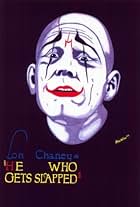IMDb RATING
8.0/10
1.2K
YOUR RATING
A fact-based account of ordinary citizens who found themselves arrested and imprisoned without charge for weeks during the October Crisis in 1970 Quebec.A fact-based account of ordinary citizens who found themselves arrested and imprisoned without charge for weeks during the October Crisis in 1970 Quebec.A fact-based account of ordinary citizens who found themselves arrested and imprisoned without charge for weeks during the October Crisis in 1970 Quebec.
- Awards
- 3 wins & 1 nomination total
Sophie Clément
- Ginette Lavoie
- (as Sophie Clement)
J. Léo Gagnon
- L'épicier
- (as J-Léo Gagnon)
- Director
- Writer
- All cast & crew
- Production, box office & more at IMDbPro
Storyline
Did you know
- TriviaOfficial submission from Canada for the 1975 Academy Awards.
- GoofsWhen Richard Lavoie is arrested, officers ask him his age and birthday. He answers he's 34 and born on January 31th, 1939. This may seem inaccurate, since the events of the movie are all set in October/November 1970, which would give him 31. However, Richard Lavoie's actor, Claude Gauthier, gave in fact his own birth date and age at the time of filming. This echoes the dual aspect of the movie, when, in the documentary part of the movie, the actors gave their real life's names and personal own anecdotes. By giving his own birth date, the actor communicates that he shares the same fate as the character, that of an artist who has espoused separatism and therefore is exposed to the repression of the federal government; he could have been the one in prison, being asked about his birth date and age.
- ConnectionsEdited into La conquête du grand écran (1996)
- SoundtracksLa Complainte de mon frère
Written by Philippe Gagnon
Featured review
In October, 1970, Canada's War Measures Act allowed authorities to arrest and imprison anybody that they suspected of domestic terrorism in association with the FLQ (Front de Libération du Québec). As a result, over four-hundred innocent Montreal citizens were wrongly incarcerated. Fifty of them gave their stories to director-writer Michel Brault. From their stories, five composite characters were created for "Les Ordres": a unionized labourer (Clermont Boudreau) and his wife (Hélène Loiselle) who are raising three school-age daughters; an unemployed father (Claude Gauthier) who cares for a baby and toddler at home; a social worker (Louise Forestier) who advocates for welfare recipients; and a doctor (Guy Provost) who has been involved in socialist politics.
Even before the arrests have begun, the story shows how bleak life is for the working-class and the poor. However, this appears relatively mild compared to the shocks that are yet to come. Brault shows brilliance in his subtlety during the arrest scenes. His level of detail for nuanced yet important actions have at least as much impact as violence does in other films especially the situations where children are to be left without a caretaker at home. And his intermingling of the various arrest scenes is done perfectly. Not only do they flow well together; they even have more impact when shown simultaneously.
The second half of the film takes place in the men's and women's prisons. While these scenes have less impact than those in the first half, the theme of a shocking injustice continues especially the abuses in the men's prison.
The performances are uniformly strong and moving. The actors convey to the audience what it would be like to enter an unexpected nightmare with apparently no end in sight.
One of the reasons this docudrama feels like a thriller is that it took place in Canada, let alone under the popular Prime Minister Pierre Trudeau. Considering similar incidents during the past few years (the scandalous G20 Toronto conference), it shows that certain freedoms can never be taken for granted. - dbamateurcritic
OUTSTANDING ACHIEVEMENT: Directing by Michel Brault
Even before the arrests have begun, the story shows how bleak life is for the working-class and the poor. However, this appears relatively mild compared to the shocks that are yet to come. Brault shows brilliance in his subtlety during the arrest scenes. His level of detail for nuanced yet important actions have at least as much impact as violence does in other films especially the situations where children are to be left without a caretaker at home. And his intermingling of the various arrest scenes is done perfectly. Not only do they flow well together; they even have more impact when shown simultaneously.
The second half of the film takes place in the men's and women's prisons. While these scenes have less impact than those in the first half, the theme of a shocking injustice continues especially the abuses in the men's prison.
The performances are uniformly strong and moving. The actors convey to the audience what it would be like to enter an unexpected nightmare with apparently no end in sight.
One of the reasons this docudrama feels like a thriller is that it took place in Canada, let alone under the popular Prime Minister Pierre Trudeau. Considering similar incidents during the past few years (the scandalous G20 Toronto conference), it shows that certain freedoms can never be taken for granted. - dbamateurcritic
OUTSTANDING ACHIEVEMENT: Directing by Michel Brault
- proud_luddite
- Oct 9, 2018
- Permalink
Details
Box office
- Budget
- CA$260,000 (estimated)
- Runtime1 hour 49 minutes
- Color
- Sound mix
- Aspect ratio
- 1.66 : 1
Contribute to this page
Suggest an edit or add missing content































